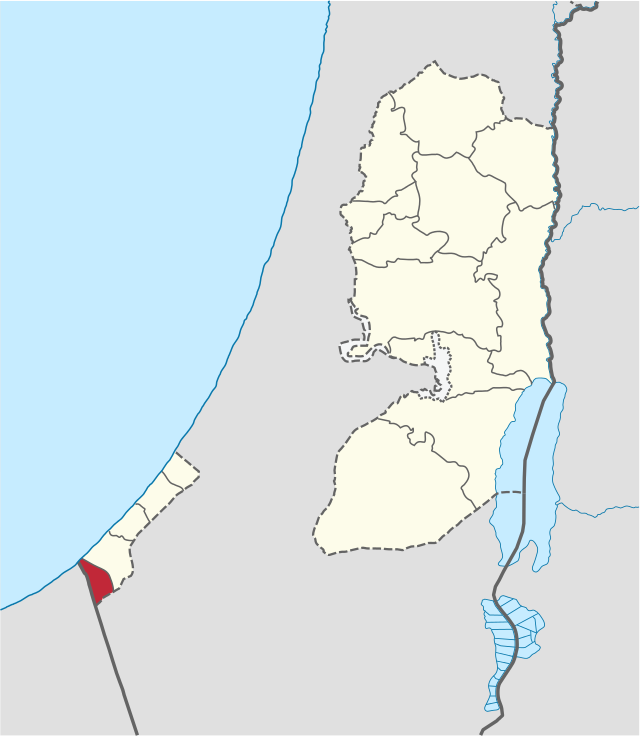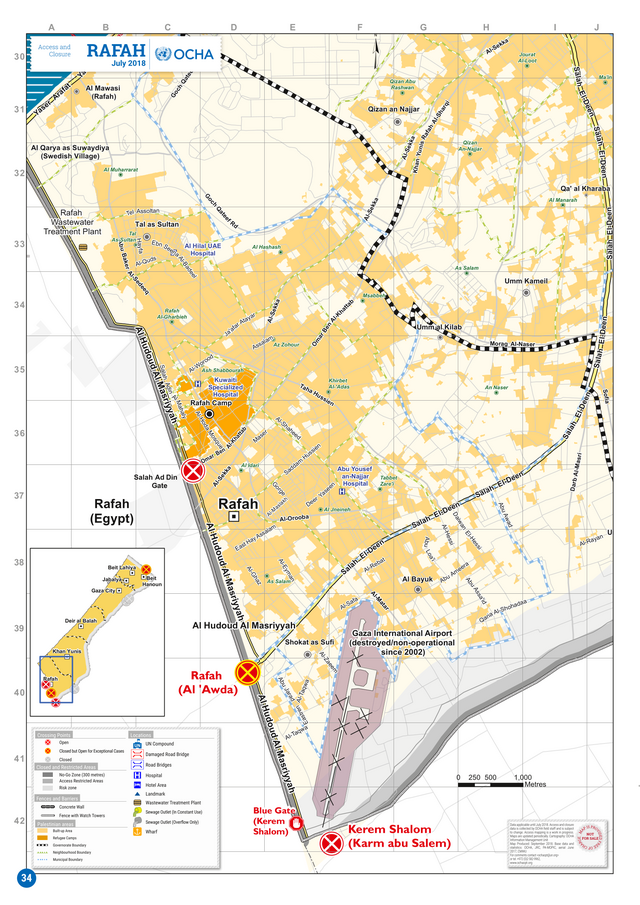An Israeli Military Campaign on Gaza’s Rafah City May Result in a Full Regional War

By: Ghassan Rubeiz / Arab America Contributing Writer
Introduction
The next catastrophe in the Gaza Strip may take place in Rafah. Israel’s Prime Minister Benjamin Netanyahu has announced a ground incursion into this southern city on the border with Egypt. Netanyahu does not think of Palestinians. From the northern and central part of the Strip, about a million residents have already been forcibly displaced to Rafah.
President Biden is alarmed by the carnage, but he is hesitant to pressure an ally that receives enormous financial aid as well as military and political support with no attached conditions. On February 8, Biden said that Israel’s response in Gaza “has been over the top.” Last week, US officials warned that it would be a disaster to carry a ground offensive on Rafah. Officials of the Arab Gulf States, several European Union leaders, UN agencies, and human rights organizations have cautioned against targeting Hamas in an overcrowded city of refuge. Rafah has turned into a tent city for displaced Gazans. Their homes have been destroyed, their children malnourished, and their pregnant women are delivering babies in the severest of sanitary conditions. The Israeli Defense Forces claim they have a plan to evacuate over a million people to “safe” zones. Where will these victims find safety? “Genocide” best describes the situation. If Rafah is attacked, evidence of war crimes for Gaza’s International Court of Justice case will continue to mount.

Washington’s diplomatic isolation
A ground incursion into Rafah would make Biden look hopelessly weak and indecisive. The US is gradually losing its superpower status in the Arab world. Biden’s compassion for Palestinian suffering has proven to be artificial, although he is obsessive about losing Arab and Muslim American votes in November. To show concern for Palestinians, Biden declared his personal support for a Palestinian state. But his promise has never been backed up by official action (Responsible Statecraft).
William Burns in Cairo to de-escalate tension
To improve his image among Arabs, Biden should forcefully back CIA’s Director William Burns, who is in Cairo this week to negotiate with Egypt, Israel, and Qatar for a ceasefire. Over the weekend, the prospects of a ceasefire improved. The details of a possible exchange of captives are not known yet; there still are significant gaps (AP News).
In return for the freeing of the remaining Israeli hostages, the US must put pressure on Israel to release many of those Palestinian prisoners who could play a constructive role in the resolution of the Israel-Palestine conflict. The Gaza crisis may take years to settle. For peace efforts to succeed, new leadership on both sides of the conflict is desperately needed.
Time to release Marwan Barghouti
In previous columns, I have mentioned the case of Marwan Barghouti, an extremely popular Palestinian leader who was arrested by Israel during the second Intifada in 2002. He was charged with murder, prosecuted, and sentenced to five life terms. His murder charges are questionable. If freed, Barghouti could work with any Israeli government that is willing to end the occupation and achieve a lasting peace. According to Wikipedia, In January 2007, Israeli Deputy Prime Minister Shimon Peres declared that he would sign a presidential pardon for Marwan Barghouti if elected to the Israeli presidency. However, despite Peres winning the presidency, a pardon was not issued. (Wikipedia)
Barghouti could become a Palestinian leader comparable to South Africa’s Mandela. He has stated I still seek peaceful coexistence between the equal and independent countries of Israel and Palestine based on full withdrawal from Palestinian territories occupied in 1967 (Washington Post).
A Barghouti-led team could replace Hamas leadership in Gaza and the West Bank. He is the only figure who is supported by all Palestinian political groups, including Hamas.
Israel not ready for compromise
Still shocked by the horrific events of October 7, most Israelis are currently opposed to any form of coexistence with Palestinians. The release of Barghouti can only happen with significant pressure from Washington.
Israeli officials do not seem to be sincere in claiming that Barghouti could not be freed because he has “blood on his hands.” It was no natural disaster that spilled the blood of tens of thousands of Gazans.
Netanyahu assumes that in Rafah, he can finish the job of eliminating Hamas. He does not seem to be aware that the more carnage he inflicts on innocent civilians, the more the resistance to the occupation grows inside Israel and in the Arab world.
Axis of Resistance against Israel invigorated
Tel Aviv faces a growing Axis of Resistance: Hamas survives; Hezbollah is gaining strength; the Houthis are joining the regional resistance; and a major Iraqi militia is pushing for the withdrawal of US troops. Moreover, the Arab world is coalescing around a unified position to support Gazans.
Egypt’s position
Israel’s plan to dismantle Hamas in Rafah carries an indirect threat to the Egyptian state. First, there is the threat of ethnic cleansing across the Rafah border into Egypt under the pretext of humanitarian evacuation. Second, Netanyahu claims that Hamas receives covert support from Egypt through underground tunnels that connect Rafah to the Sinai. Egypt denies this charge. The negotiations this week, which Egypt hosts, will no doubt deal with this highly sensitive matter. If Israel continues its aggressive approach in dealing with its political challenges, eventually, local pressure may force Cairo to withdraw from Camp David Accords, a historical peace treaty signed with Tel Aviv in 1978.
Erosion of the Abraham Accords
Rafah may play a central role in how the war in Gaza ends. Egypt is slowly moving from being a steady partner for Israel in “counterterrorism” to a sympathetic partner to the Palestinians. The same shift is happening with the Saudis and the rest of the Arab Gulf states. These oil-rich states have shifted from the Abraham Accords diplomatic arena to the fold of the Arab League, albeit not yet permanently. The Arab states have become critical of Israel’s disproportionate response to October 7. Outside of Jordan and Morocco, there are no longer major political figures close to Washington in the Arab world.
Netanyahu’s search for an end to Hamas and Hezbollah seems delusional. In Rafah, the Gaza war may end. Or it may expand to undermine the stability of the entire region. It is time for Biden to take action.
Ghassan Rubeiz is the former Middle East Secretary of the World Council of Churches. Earlier he taught psychology and social work in his country of birth, Lebanon, and later in the United States, where he currently lives. For the past twenty years, he has contributed to political commentary and delivered occasional public talks on subjects related to peace, justice, and interfaith. You can reach him at rubeizg@gmail.com
The views and opinions expressed in this article are those of the author and do not necessarily reflect the position of Arab America. The reproduction of this article is permissible with proper credit to Arab America and the author.
Check out our Blog here!


